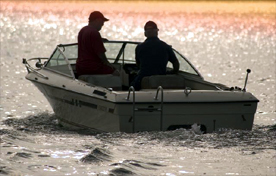Georgian Bay Boaters and Cottagers Code
In a water based, largely water access only community we are all boaters. Both recreational boaters and cottagers share the same concerns about safe enjoyment and environmental protection of our waterways. This code is intended to apply to all boaters; cruising yachtsmen, cottagers venturing up the shore for a cruise or going to and from the marina and anyone using smaller craft, be they resident or visitor. This code has been developed cooperatively by both the Ontario Boating Forum and the Georgian Bay Association to set responsibilities and expectations to help ensure that we peacefully coexist.
- Respect private property. Absolutely do not go ashore without permission if land is posted or has a cottage or building on the site. If you are a landowner, you are encouraged to post your property. Property owners should be polite and reasonable in asking trespassers to leave their property. Trespassers should comply promptly with a request to leave private property.
- Anchoring near cottages. All stakeholders are entitled to maximum privacy. Anchor and camp out of sight of cottages whenever possible. While cottagers don't own the water, they cannot move their cottage the same way a boat can be moved. Conversely many bays have traditionally been used as anchorages
- Occasionally it may be necessary to anchor close to a cottage for safety reasons.This may be due to wind, water depth, or other safety concern. When this occurs, boaters and cottagers should engage in open and friendly communication. If you have anchored close to a cottage because of an emergency or safety reason, explain your situation to the affected cottagers as soon as possible. If cottagers are unhappy about proximity, let the boater know that you are the owner of the adjacent land and would appreciate a little more space. Suggest an alternative anchorage that would be more suitable for both parties.
- When going ashore on crown land. Always leave with every thing that you brought ashore. This includes refuse. It also includes dog feces where reasonably possible.
- Fires on crown land. When going ashore for a picnic, always abide by fire safety rules including temporary fire bans. Some sites are posted for no camp fires. In such areas the best alternative is a cooking stove. If you must have a fire and are in an area where fires are allowed, attempt to use safe public fireplaces and be sensitive to overuse of deadfall which upsets the ecological balance of the site. It's best if you bring your own wood. Always drown your fire before leaving.
- We are all entitled to quiet enjoyment of the water and shore. This applies especially during the evenings. Keep noise to a reasonable levee. Use of PWC's is a growing concern. Use of these or other noisy craft should be limited out of respect for both people and the environment. Use of un-muffled exhausts is prohibited by law within 5 miles of shore.
- All boaters should make no wake in bays where boats are anchored. Beware of anchor lines, swimmers and small watercraft.
- All boaters must be aware of the impact of their wake and abide by speed limits. Minimize your wake in narrow channels, near cottage docks and in government posted speed zones. All boats should minimize wake for small runabouts, kayaks and small sail craft whenever possible.
- Respect the difficulty of maneuvering larger vessels. Smaller craft should maintain a reasonable distance from larger cruising yachts. Larger craft need longer to respond and can't see smaller craft close to them. Please refrain from recreational activity such as tubing, fishing, windsurfing and swimming in major boat channels.
- We all have equal right to enjoy the water and responsibility to keep it clean. Polluting the water with unlawful black water and other discharges is a crime. We can all go further by using environmentally friendly, biodegradable cleaning products, refraining from bathing in the lake, ensuring that septic systems are operating within code, and limiting grey water discharge in enclosed/confined bays to the extent possible.

